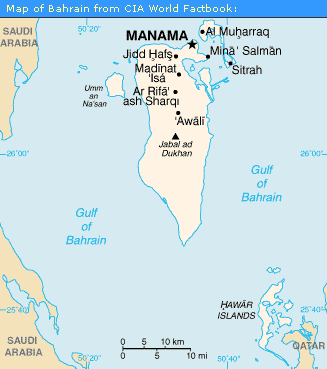The Al Khalifah family has ruled Bahrain since 1783. Sheikh Hamad Bin-Isa Al-Khalifah, who was educated in Great Britain and the United States and served as Bahrain’s minister of defense for 17 years, became emir in 1999 following his father’s death. In 2002, Bahrain switched from an emirate to a monarchy; Sheikh Hamad became King Hamad, and the country promptly held its first elections in three decades. The legislature’s Shura Council is appointed by the king, and the House of Deputies is elected by popular vote. The Khalifa family, and most of the army and police, are Sunni Muslims, but 70 percent of Bahrainis are Shia Muslims. The mostly Shia political opposition objected to a number of the king’s electoral policies and boycotted the 2002 vote, resulting in a disproportionately Sunni parliament in a nation already controlled by the Sunni minority. Yet King Hamad has proved himself to be politically deft and open to reform. In 2004, critics of the government called for an expansion of Bahrain’s democracy, and 19 of the protesters were jailed; Hamad immediately pardoned them and proposed dialogue with the opposition. Afterwards, police scuffled with some Shia clerics critical of the U.S.; the king reacted by firing the interior minister — who happened to be his uncle. Not surprisingly, Hamad’s popularity soared. In 2004, the country became the first Gulf state to sign a free-trade agreement with the U.S., a step that some hope will eventually foment further democracy. Bahrain can only be described as a monarchy, but its king can fairly be described as one with democratic tendencies.
- Previous: Afghanistan
- Next: Egypt



